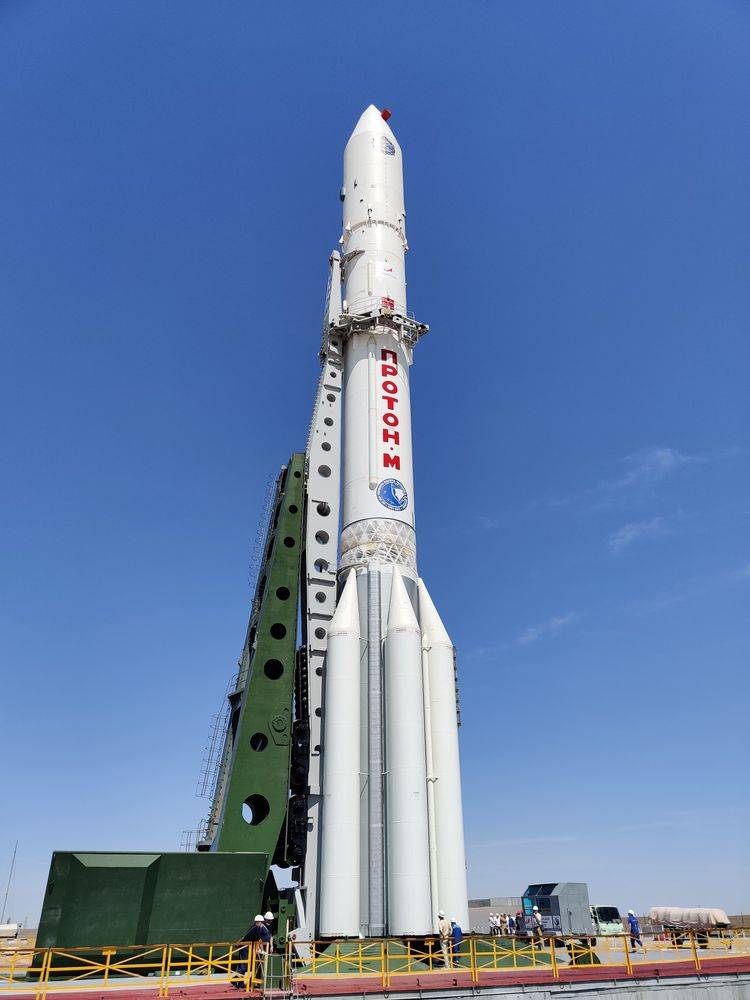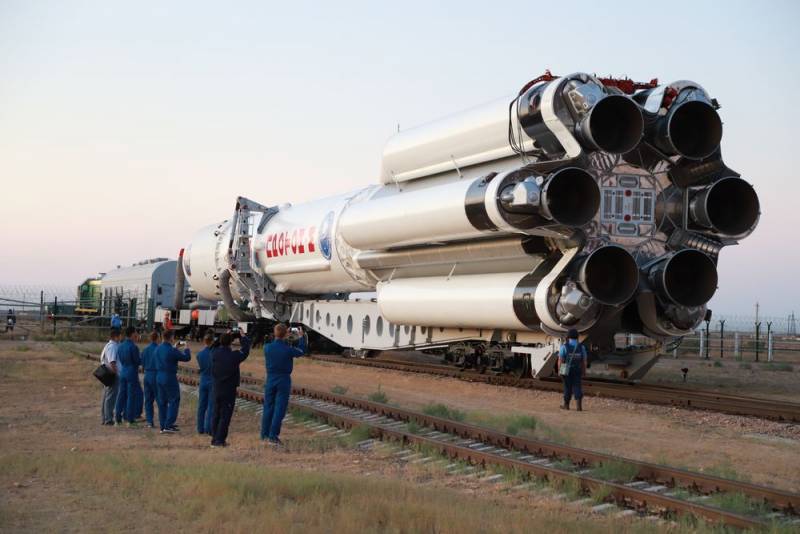Rocket on the launch pad: module "Science" is sent into orbit
On July 17, at 02:30 Moscow time, at the Baikonur cosmodrome, the launch of the Proton-M carrier rocket with the Nauka multipurpose laboratory module began. At present, the rocket with the Russian segment of the International Space Station has been delivered to the launch pad of site No. 200 and installed in a vertical position. The launch of the Proton-M LV with the Nauka module is scheduled for July 21, 2021 at 17:58 Moscow time. This is stated in the official announcement of the state corporation "Roscosmos".
The state corporation noted that the Nauka module will become the first heavy Russian segment of the ISS since 2000, when the Zvezda service module was sent into orbit. At the same time, from 2010 to the present, Russia has not sent its segments to the ISS, then a small research module "Rassvet" was added. The ISS Russian Segment now includes: the Zarya functional cargo block, the Zvezda service module, the Pirs docking bay, and the Poisk and Rassvet small research modules.
The docking of the "Science" module with the ISS is scheduled for July 29 at 16:26 Moscow time and should take place in automatic mode. Before that, on July 23 at 16:17 Moscow time, the Pirs module, which occupies the docking station required for the Nauka module, will be undocked with the help of the Progress MS-16 cargo spacecraft and on the same day the Pirs module will be flooded in the Pacific Ocean.

Note that on April 18, Deputy Prime Minister of the Russian Federation for the defense industry Yuri Borisov announced Russia's withdrawal from the ISS project on January 1, 2025. However, the United States has expressed interest in continuing the ISS project until 2030, with anxiety observing the convergence of the positions of the Russian Federation and the PRC in space exploration.
We remind you that the ISS has been in use since 1998 and its service life should come to an end in 2024. In 2019, an air leak was recorded on the ISS, and in 2020 found six cracks in the casing of the Russian Zvezda module.

Information